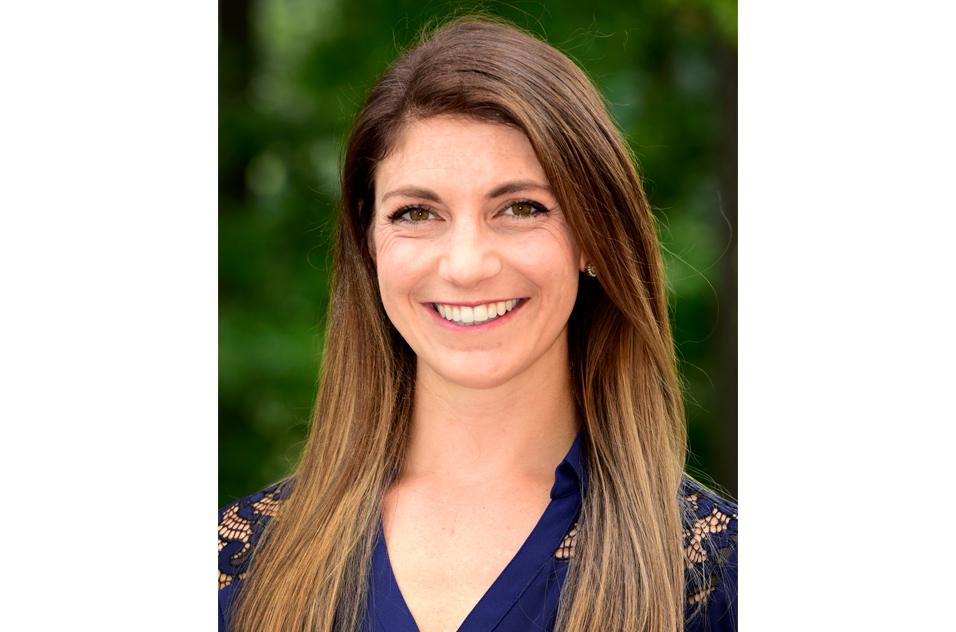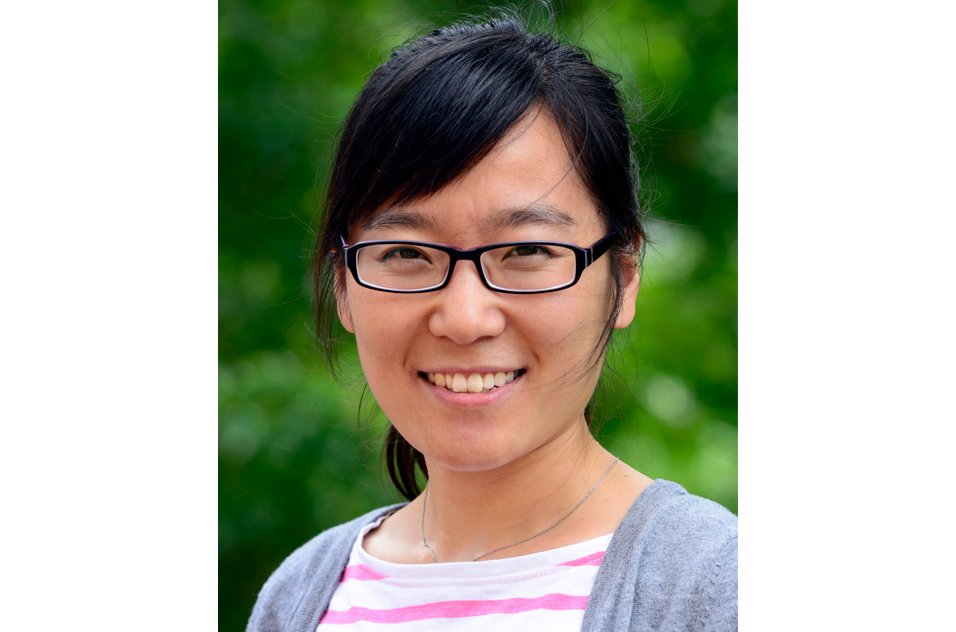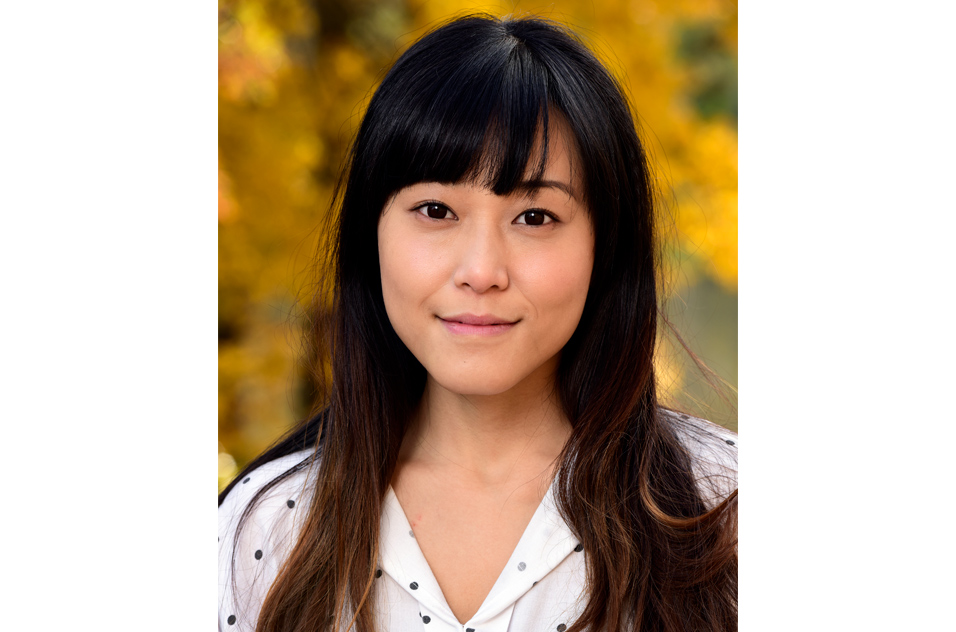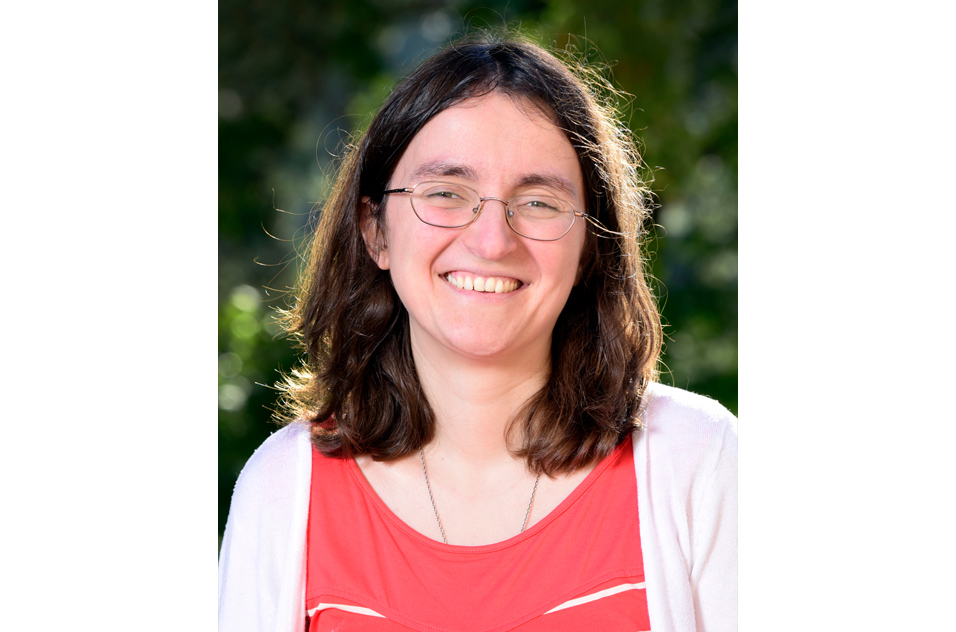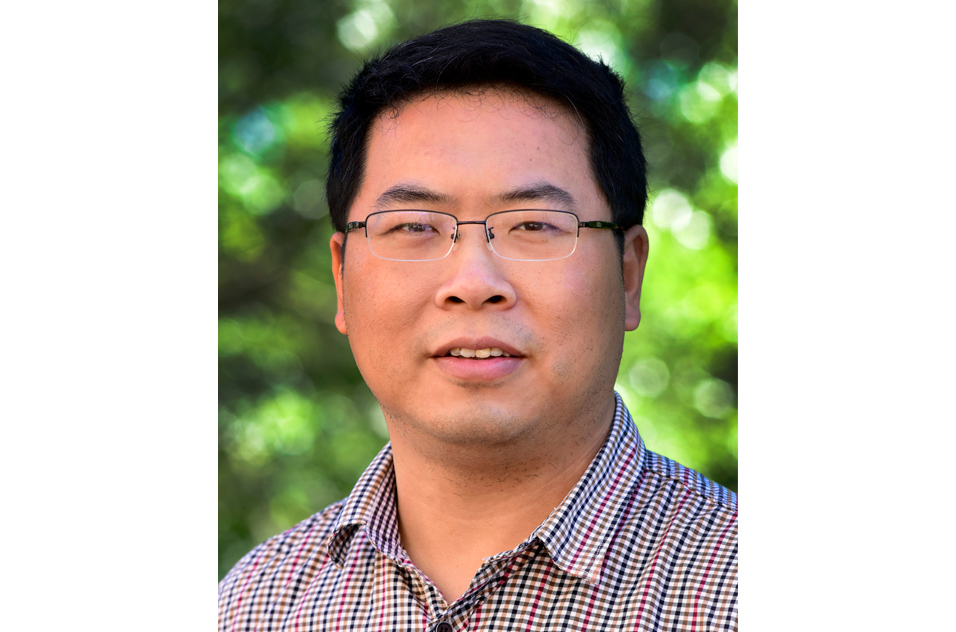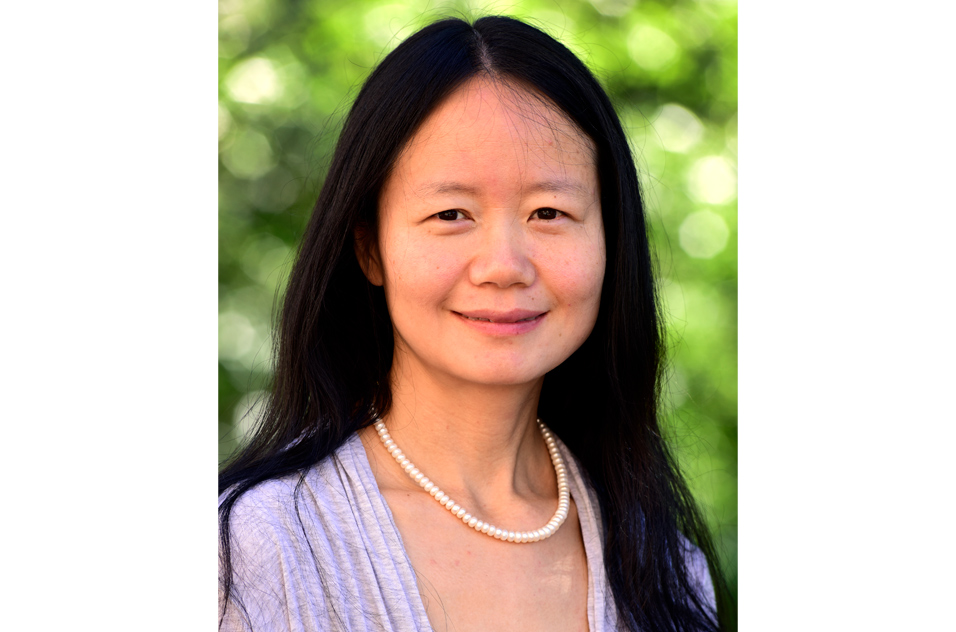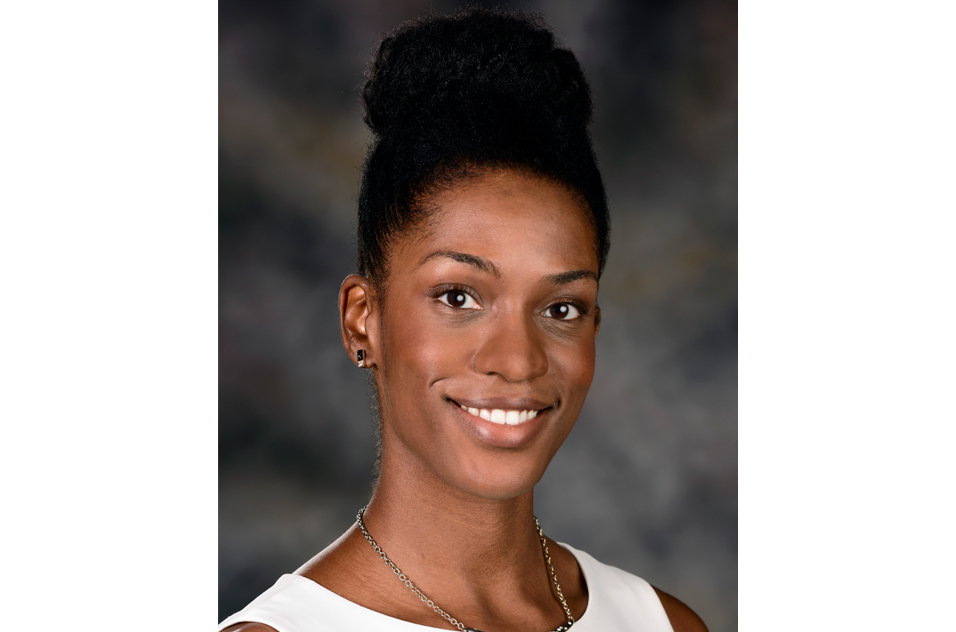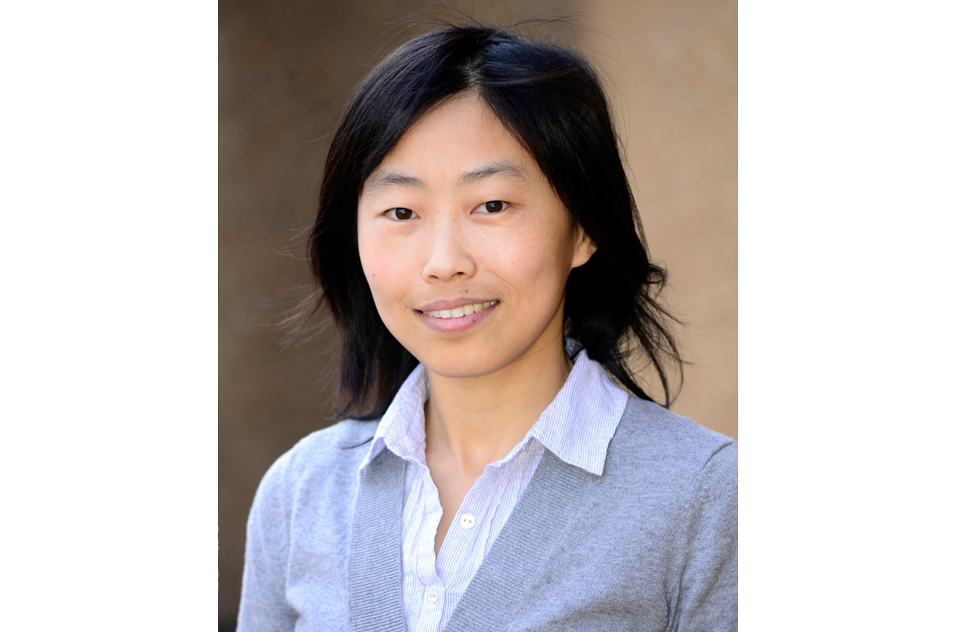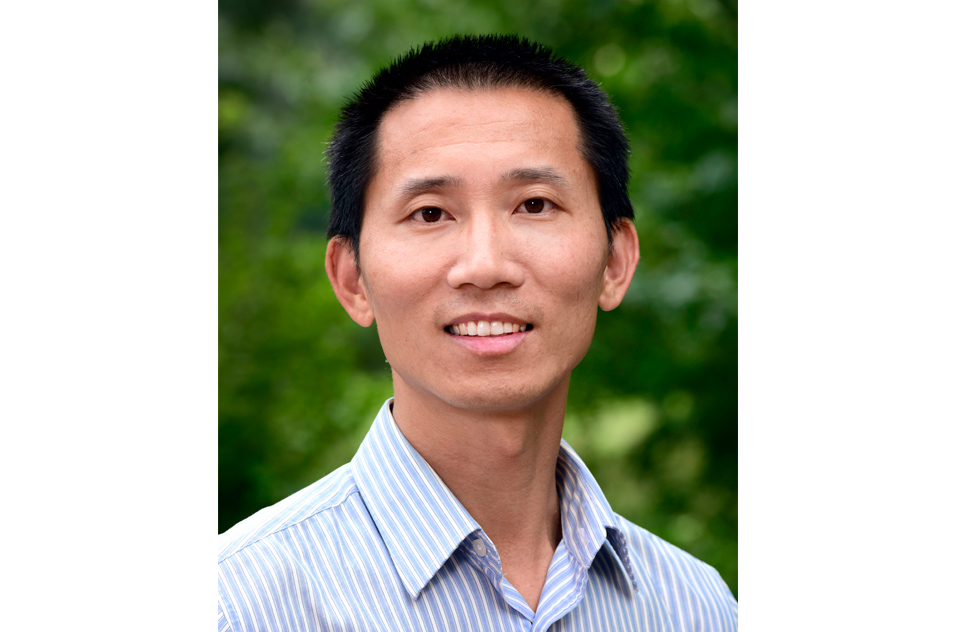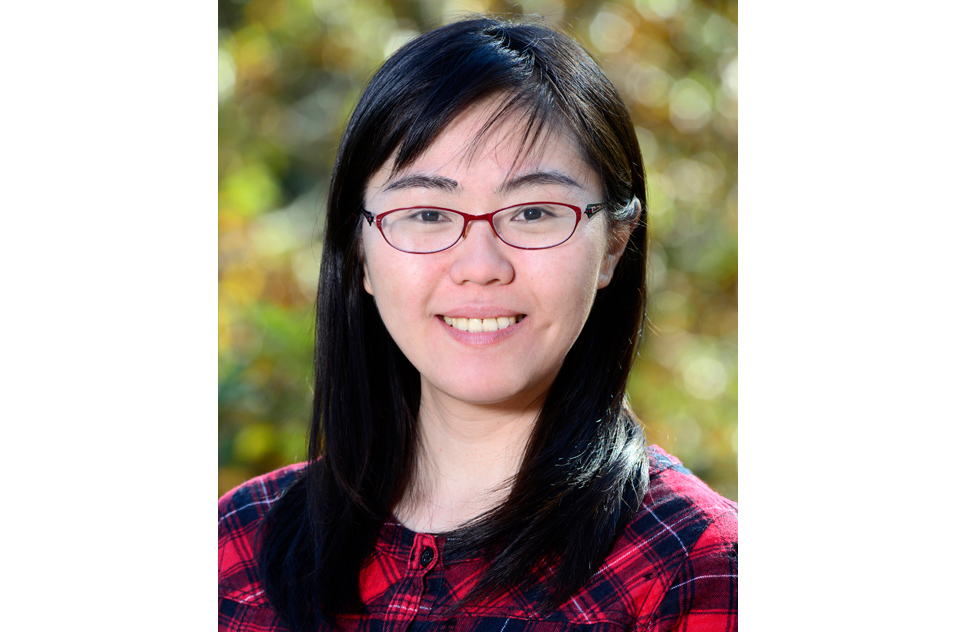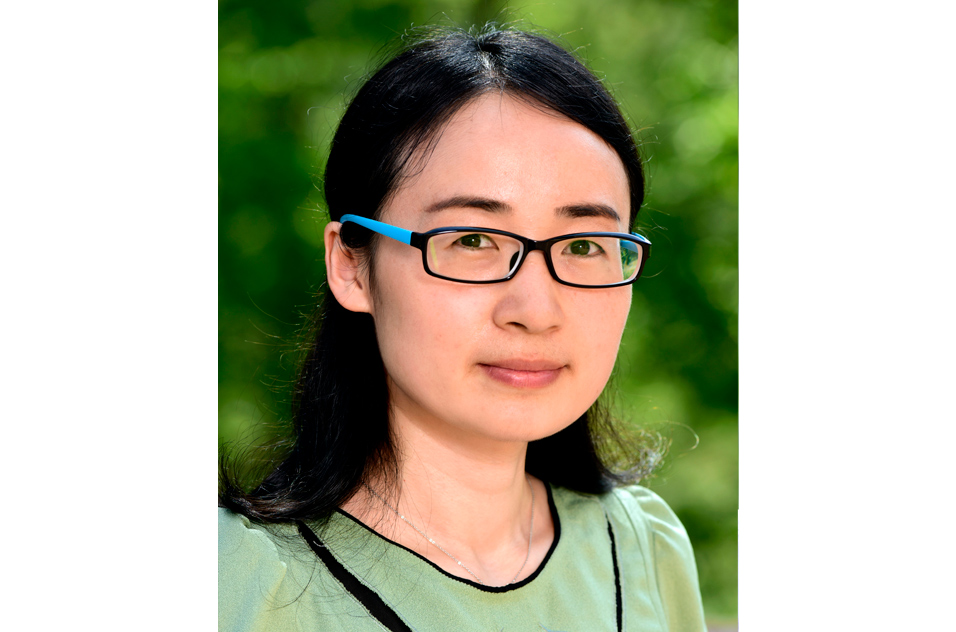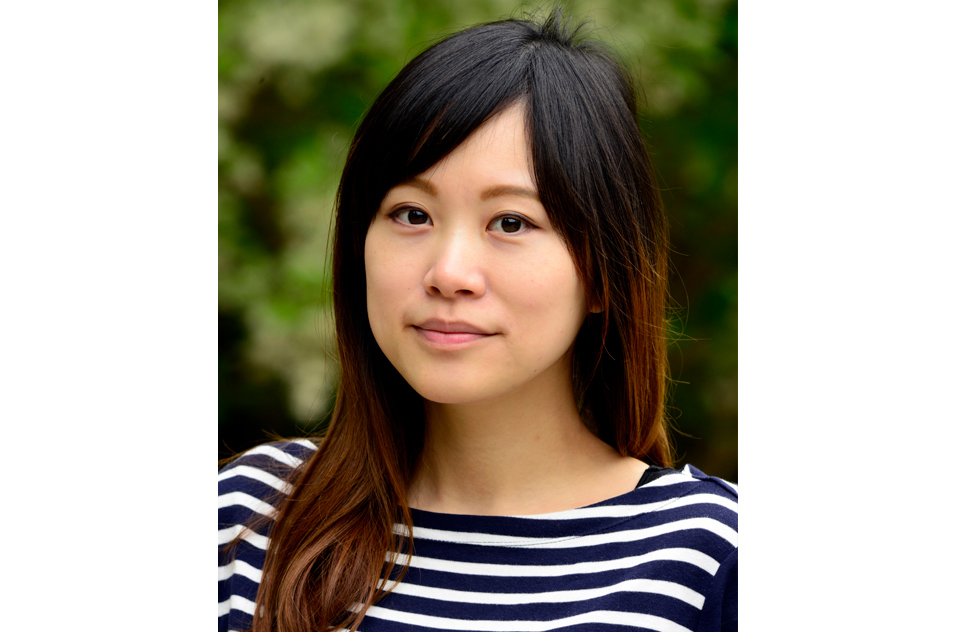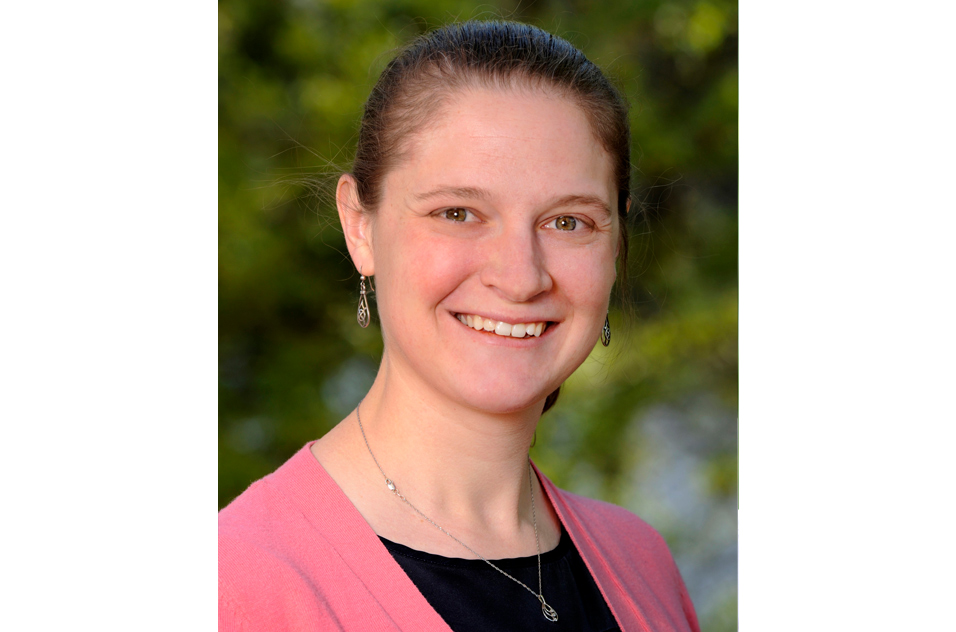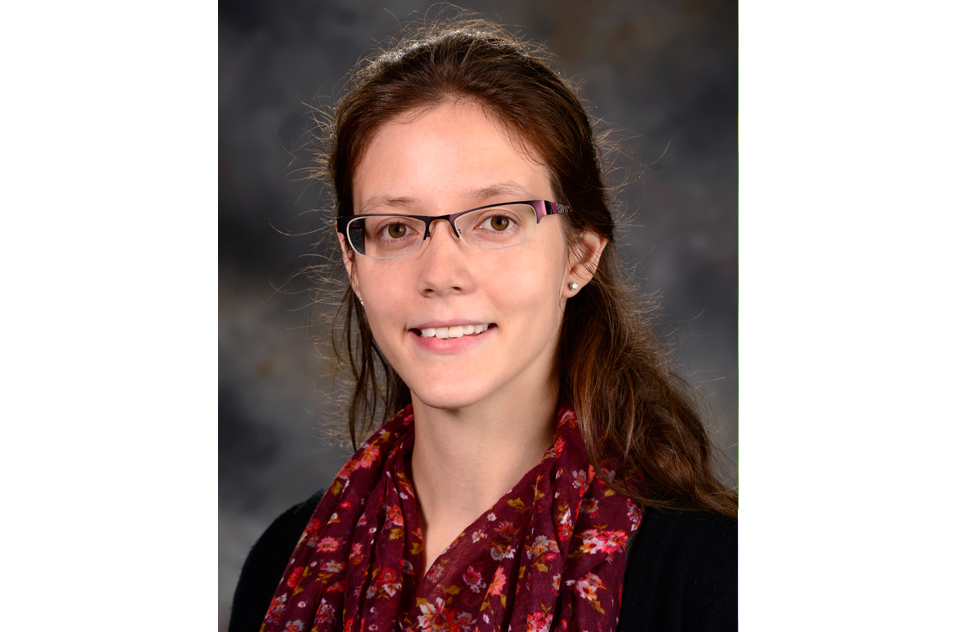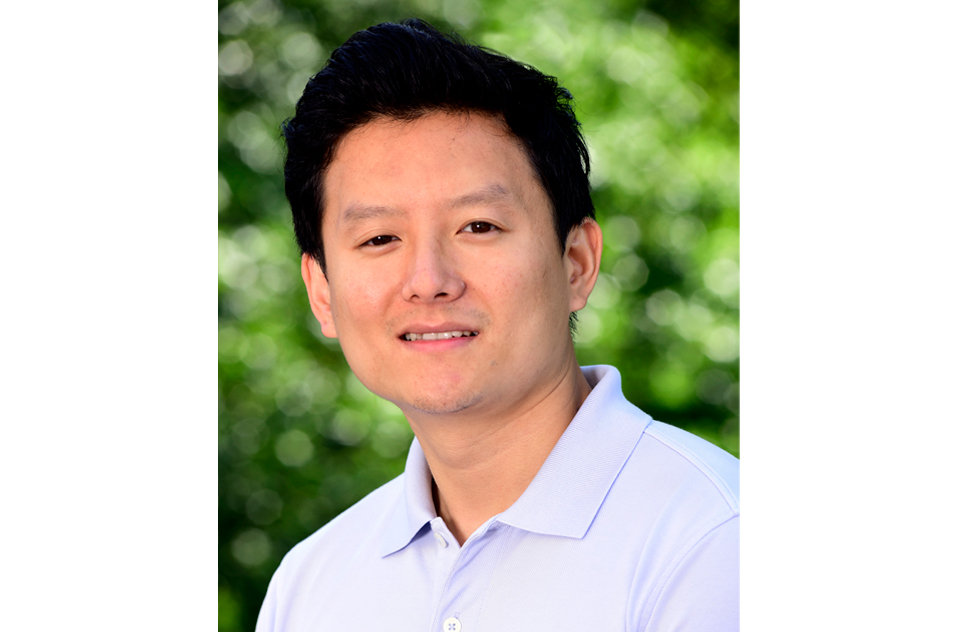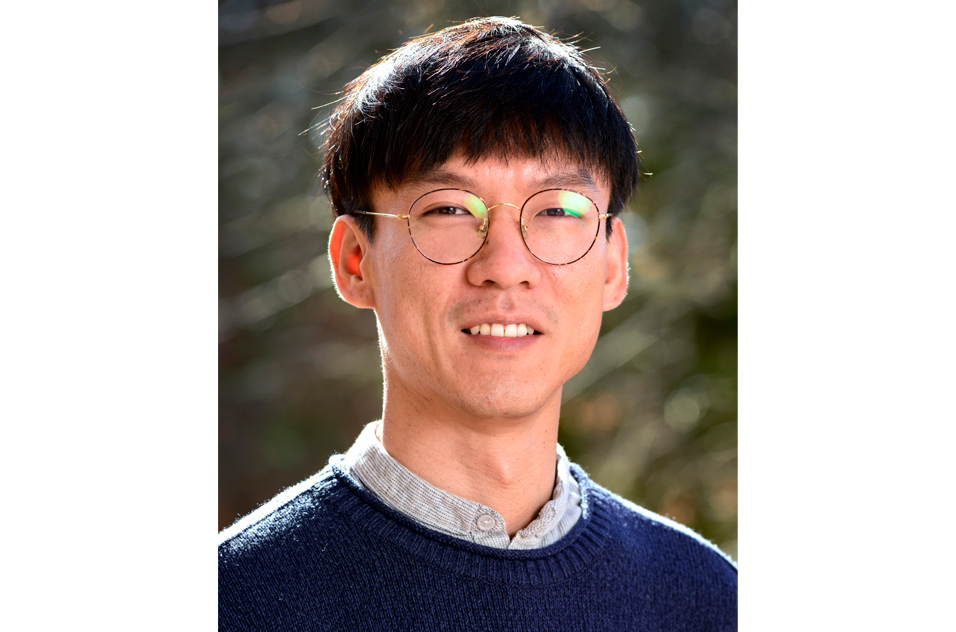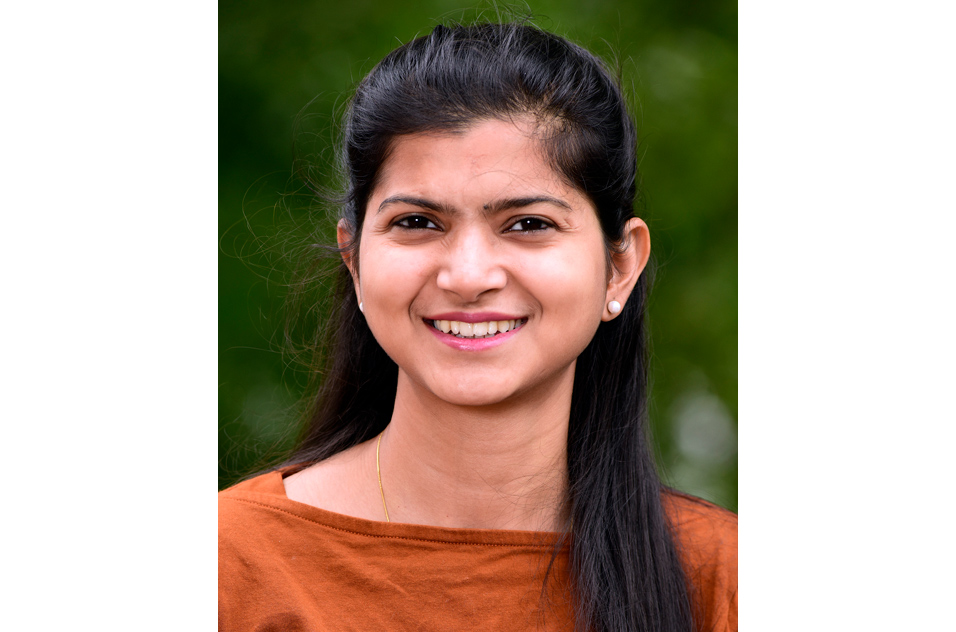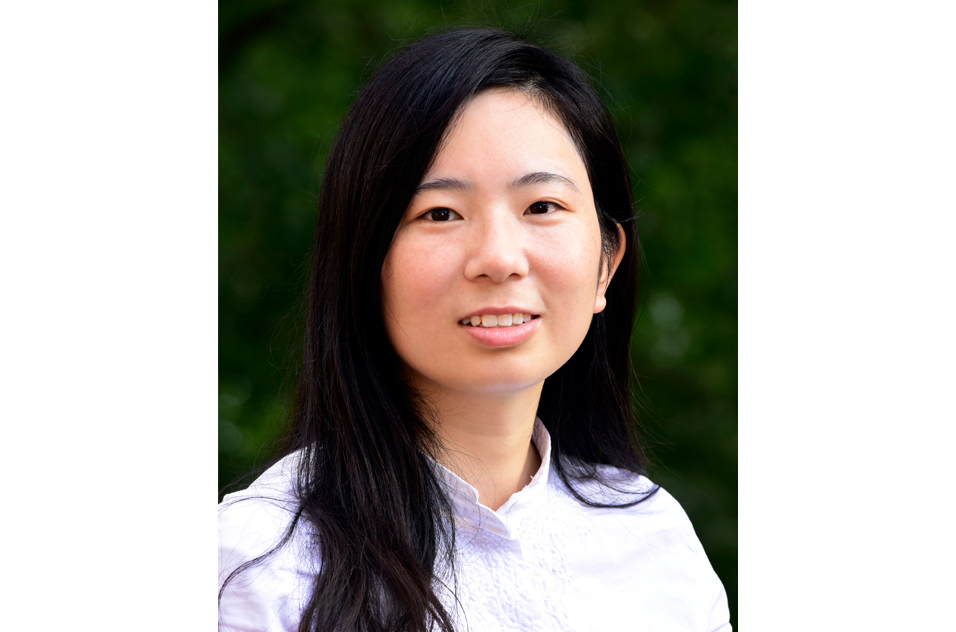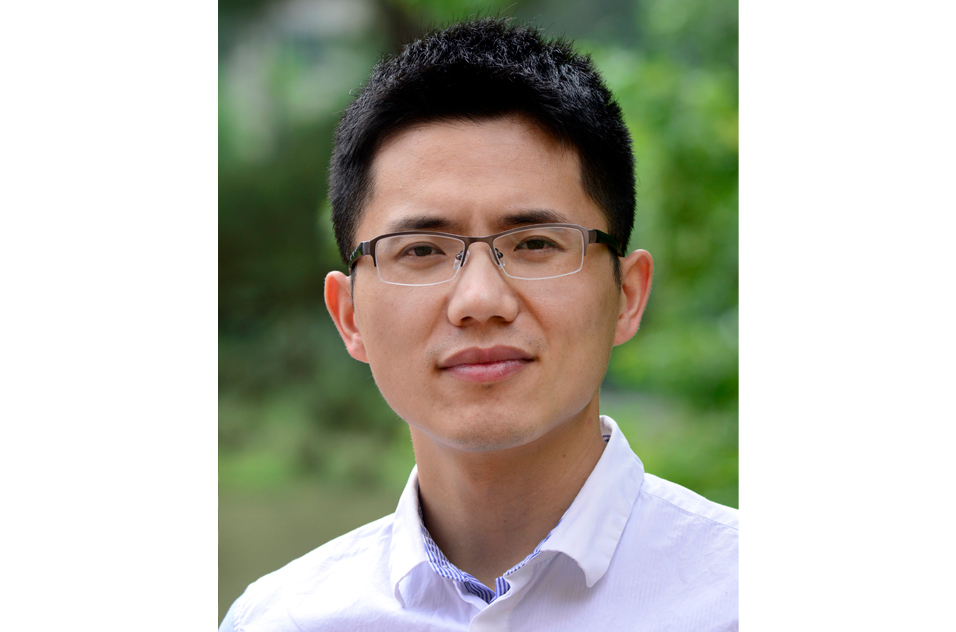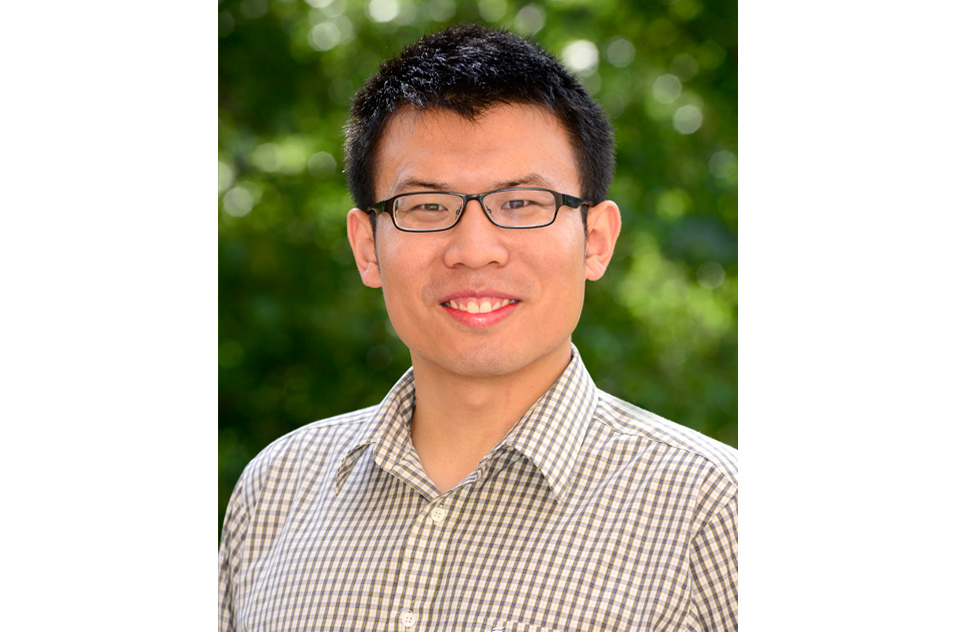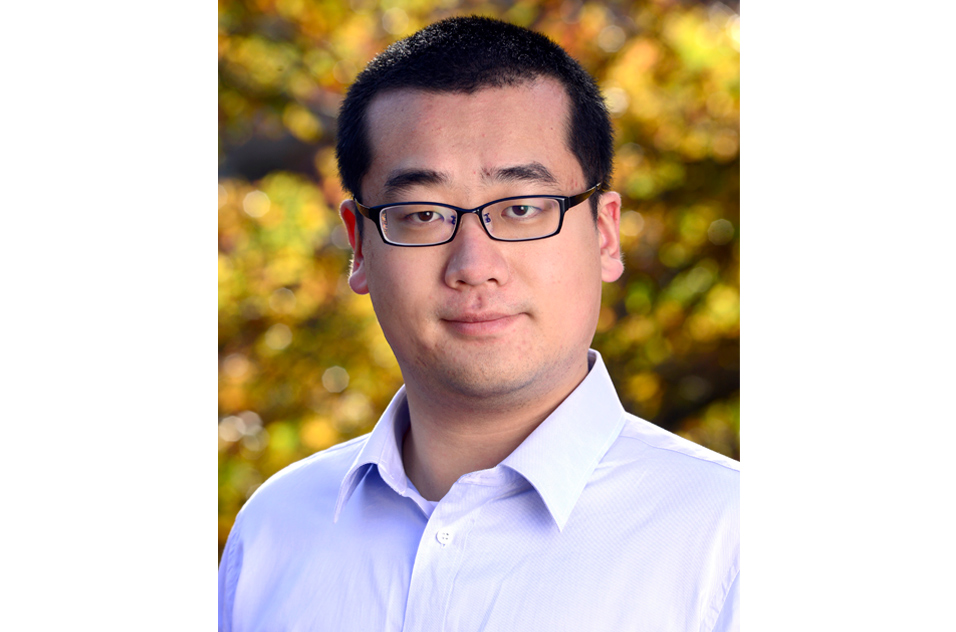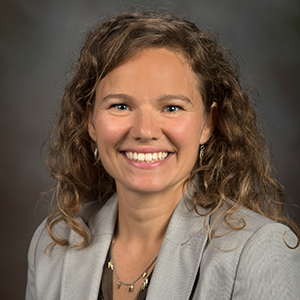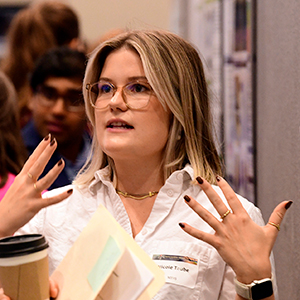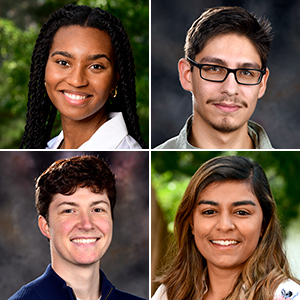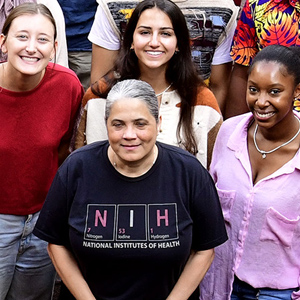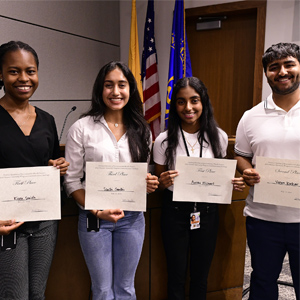Winners of the 2020 NIH Fellows Award for Research Excellence (FARE) have been announced, and that means good news for the NIEHS community. This year, 23 of 234 FARE winners are from NIEHS. The award program began in 1995 to celebrate the best scientific research by fellows at the National Institutes of Health (NIH).
A select group
The institute has achieved similar success in previous years, but that makes its latest accomplishment no less remarkable. “It reflects the strength of our research and the fact that we have such outstanding fellows here at NIEHS,” said Tammy Collins, Ph.D., director of the NIEHS Office of Fellows’ Career Development.
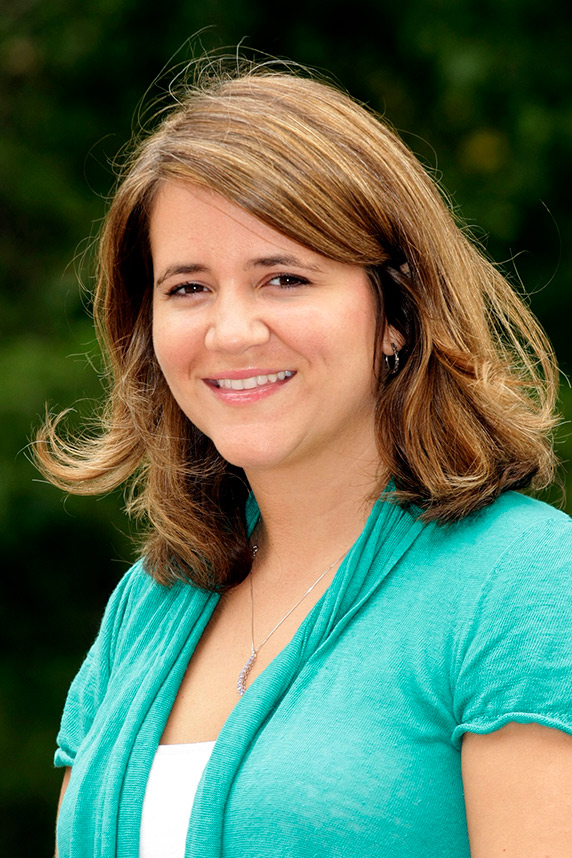 Collins has been a big supporter of scientists honing communications skills. (Photo courtesy of Steve McCaw)
Collins has been a big supporter of scientists honing communications skills. (Photo courtesy of Steve McCaw)Each year, FARE hopefuls submit abstracts describing their work, which then are judged by the previous year’s winners. Authors of abstracts that are scored in the top 25 percent take home awards. And they receive much more than a plaque. Each winner earns a $1,500 stipend to attend a scientific meeting and present his or her research. Some will be selected to present their work at the NIH Research Festival in Bethesda, Maryland, on September 11.
Six of the 2020 awardees are repeat winners: Yi Fang, Ph.D.; Wan-Chi Lin, Ph.D.; Prashant Rai, Ph.D.; Chunfang Gu, Ph.D.; Daisy Lo, Ph.D.; and Monica Pillon, Ph.D.
Making science understandable
Collins attributed much of the NIEHS fellows’ success to communication skills. “NIEHS has really been ramping up the importance of being able to communicate your science to a general audience,” she said. “You have to be concise and submit an abstract that effectively and clearly tells people what the research is about, in a way that they can understand.”
That emphasis on communication is helping trainees connect with more people — and receive more recognition. Three 2020 FARE winners — Bevin Blake, Chitrangda Srivastava, Ph.D., and Dhirendra Kumar, Ph.D. — have won the NIEHS Big Picture, Small Talk Communication Challenge. In that challenge, NIEHS trainees are given three minutes to discuss their work in clear language.
Blake is a predoctoral researcher in the National Toxicology Program’s Reproductive Endocrinology Group, led by Sue Fenton, Ph.D. Srivastava is a visiting postdoctoral fellow in the Cell Biology Group, led by Anton Jetten, Ph.D. Kumar is a visiting fellow in the Systems Biology Group, led by Raja Jothi, Ph.D.
Twenty-two of the 23 winners are shown in the slideshow below, along with their mentors and research title. Not shown is Angelico Mendy, M.D., Ph.D., who was mentored by Darryl Zeldin, M.D. Mendy’s abstract was titled “Association of Urinary Levels of Bisphenols F and S Used as Bisphenol A Substitutes with Asthma Outcomes.”
FARE applications are accepted every year in February and March. The rules and regulations are available at the NIH Office of Intramural Training and Development FARE website.
(Ernie Hood is a contract writer for the NIEHS Office of Communications and Public Liaison.)





